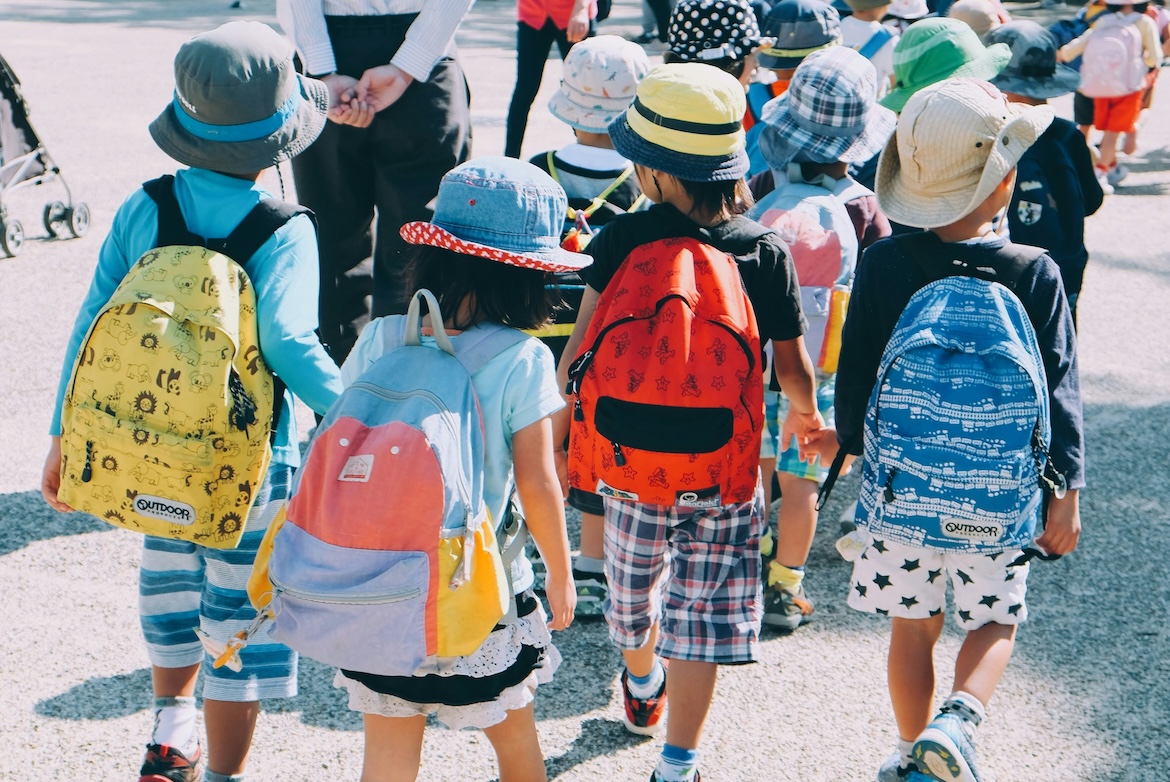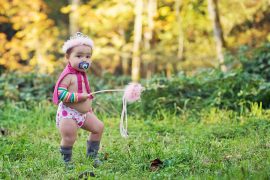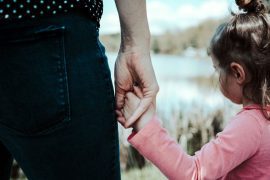By Angharad Davies
The school gate moment creeps up quickly. One day you’re watching them wobble down the street on a balance bike, the next you’re ironing a tiny uniform and wondering how on earth they got so big, so fast.
As parents, we’re told to focus on the practical side of school readiness: zipping coats, holding a pencil, recognising numbers and letters. And of course, those things matter. But there’s another side to school readiness, the emotional and social side, that often gets overlooked – whether they can manage friendships, navigate unkind moments, and find their voice in a busy classroom.
The truth is, the playground can be overwhelming. The dynamics of who plays with who, what happens when someone says something unkind, and how to speak up when you need help – these are challenges that shape your child’s early experience of school.
And the good news? We can prepare them. Just as we practise counting to ten, we can practise the words and mindsets that will help them stand strong, stay kind, and build connections.
Here are three powerful conversations you can have with your child before their first day of school.
- Friendship Isn’t About Fitting In. It’s About Feeling Safe
Children often believe that having lots of friends is the goal. But what matters more is having the right kind of friends – the ones who make them feel safe to be themselves.
You might say:
- “A good friend is someone you feel happy and comfortable around”.
- “You don’t need to change yourself to make someone like you”.
Ask them:
- “How do you feel when you’re with a friend who is kind to you?”.
- “Can you think of someone who makes you laugh or lets you be yourself?”.
These conversations plant the seed that friendship is about quality, not quantity. It helps children tune into their feelings as a compass for choosing who to spend time with.
- Kindness Is Powerful, But It Has Boundaries
Most parents teach kindness, but sometimes children take that to mean they should always give in, share even when they don’t want to, or accept unkind behaviour just to keep the peace.
A more empowering message is this: kindness and boundaries go hand in hand.
You might say:
- “Being kind is important. But being kind to yourself is important too”.
- “If someone is unkind, you don’t have to stay and play. You can walk away or ask an adult for help”.
Practise with them: role-play little scenarios like what to do if someone snatches a toy or says, “You can’t play”. Give them simple phrases to use, like:
- “Stop, I don’t like that”.
- “I want a turn too”.
- “That’s not kind”.
These small rehearsals build muscle memory. When the moment comes, they’ll be more ready to use their voice instead of freezing.











